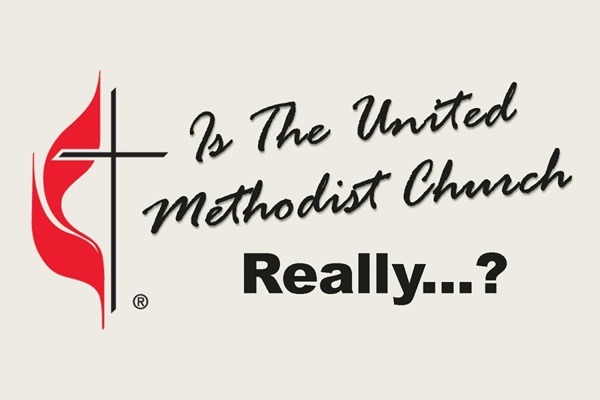At Ask The UMC, we continue to answer questions from congregations wondering about the future of The United Methodist Church, whether they should consider disaffiliating from it and what happens if they do.
This is the eighth of a series of articles offering factual responses to questions we continue to receive at Ask The UMC. This article addresses the disaffiliation process in central conferences and “extended” or “alternative” disaffiliation policies beyond 2023 in four annual conferences in the United States. All of the articles in the series are available here.
We welcome your questions and invite you to contribute to future articles in this series by sharing what you are hearing about the process of disaffiliation or the future of The United Methodist Church. Write to [email protected].
Is The UMC really…
28. Saying that Paragraph 2553 does not apply in the central conferences?
Yes.
After it was supported by the Standing Committee on Central Conference Matters, the 2019 General Conference approved a petition from the Committee on a Way Forward that legislation passed at the 2019 General Conference would not become effective in the central conferences until 12 months after the close of the 2020 General Conference.
The 2020 General Conference has since been postponed until 2024.
Thus, none of the legislation passed by the 2019 General Conference is effective in the central conferences. This includes all of the Traditional Plan legislation, as well as the disaffiliation process authorized by Paragraph 2553.
29. Providing for a “disaffiliation bridge” between the end of 2023, when Paragraph 2553 expires, until whatever process the 2024 General Conference may approve becomes effective?
The United Methodist Church, as such, is not doing this because, in fact, it cannot. For United Methodists in the United States, the only place where Paragraph 2553 applies, only General Conference can set or alter the Book of Discipline.
Under the terms of this paragraph, when the bishop, the majority of the district superintendents and the appropriate district board of location and building agree that “exigent circumstances exist that require the immediate protection of the local church’s property,” they may direct that the property and all assets of the local church be immediately vested in the conference board of trustees, which then becomes responsible for managing it or its disposal. A commitment to disaffiliate represents such an “exigent circumstance.”
South Georgia, Rio Texas, Mississippi, Central Texas, South Carolina, and Alabama-West Florida have policies for how to proceed when congregations seek to disaffiliate but Paragraph 2553 is no longer available or deemed not applicable.
In South Georgia, Rio Texas, Mississippi, and Central Texas the same or similar policies in place for implementing Paragraph 2553 will be used to address churches seeking to disaffiliate after Dec. 31, 2023, and completing the process no later than Dec. 31, 2024 (last day of annual conference 2025 in Mississippi). The Alabama-West Florida trustees announced updated policies for using ¶2549 in September 2023.
In South Carolina, the bishop and conference leadership had previously determined, through a strict reading of Paragraph 2553, that no congregations in the conference qualify for disaffiliation under the terms of that paragraph. The congregations in South Carolina do not disagree with the changes made to legislation affecting gay and lesbian persons adopted by the 2019 General Conference, and the conference itself has implemented all such changes without objection. Thus, no congregations in that conference qualify under Paragraph 2553 to disaffiliate, and thus, also, the South Carolina Conference had not adopted a separate process to enable disaffiliation under that paragraph.
In December 2022, Bishop L. Jonathan Holston announced a “Local Church Discernment Process” built around Paragraph 2549. This process looks roughly parallel to the ways many other annual conferences have created their own implementation processes for Paragraph 2553. As in many other conferences, there is a required initial discernment period, a called church conference at which two-thirds of the professing members present must affirm a request to disaffiliate, a schedule of payments to be made (in this case prior to the church conference vote) and final approval by the annual conference. In addition to the payments set by Paragraph 2553, those seeking disaffiliation in South Carolina must also pay 10 percent of the appraised value of all church property and liquid assets and all unpaid salary and benefits due to the appointed clergy. Congregations must have completed payments and the church conference by March 1 each year to be approved at the subsequent annual conference in June. Unlike the other three, this policy is designed to remain in effect beyond 2024.
This content was produced by Ask The UMC, a ministry of United Methodist Communications.





